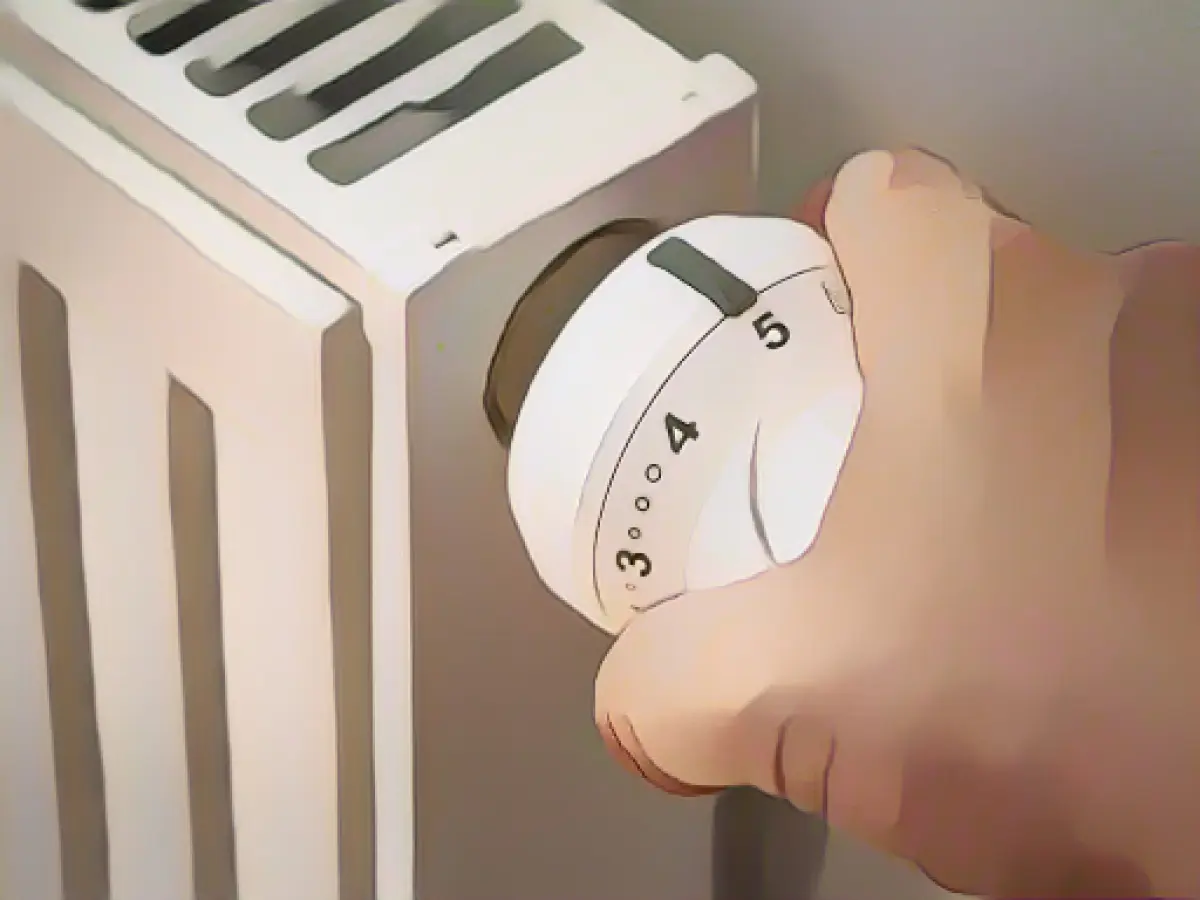Upgrade Outdated Heating Systems in Schleswig-Holstein for a Greener Future
Three out of ten heating systems in old Schleswig-Holstein clocks past the 20-year mark, with 22% surpassing the 25-year mark, according to research by the German Association of Energy and Water Industries (BDEW). This slightly lags Germany's national average, where 20% of heating systems have surpassed the 25-year mark.
The glacial shift in the heating market stems from the lengthy replacement cycles for heating systems. As Kerstin Andreae, Chairwoman of the BDEW Executive Board, explained in her "How does Germany heat?" study presentation, gas and oil are on a downward trend. Instead, eco-friendly alternatives like heat pumps and district heating are on the rise.
Addressing climate concerns in the region, the building sector in Schleswig-Holstein emits approximately 30% of Germany's CO2 emissions. Updating existing heating systems plays a significant role in reducing that figure. Averaging 13.6 years old, heating systems in Schleswig-Holstein have seen a slight drop in age compared to 2019 and below the nationwide average, with notable differences in technologies. On average, oil heating systems hold the longest history at 21.5 years, while gas central heating systems clock in at 10.5 years.
Residents of Schleswig-Holstein can benefit from the shift towards renewable energy sources. By transmitting an energy-efficient home, households can demonstrate a smaller carbon footprint and engage with the upcoming Building Energy Act, which encourages climate-friendly heating techniques by requiring at least 65% renewable energy for new installations starting in 2024.
The Importance of Modernizing Heating Systems
Modernizing outdated heating systems should be at the forefront of Schleswig-Holstein's eco-friendly initiatives to improve its greenhouse gas emission standings and align with federal guidelines. Strategies to modernize infrastructures and solutions to reduce emissions include:
- Electrification of Heat: With heat pumps producing three to five units of heat for every unit of energy input, they are efficient alternatives to gas-fired boilers. In Europe, heat pumps supply 16% of residential and commercial buildings' heating and cooling needs. Although adoption in Germany and Schleswig-Holstein is lower compared to Nordic countries, European heat pump sales are on a steep incline.
- District Heating: Utilizing district heating systems since 12% of space heating and hot water are derived from clean sources like geothermal energy, provinces can implement this solution to decrease emissions. Although implementing district heating in other jurisdictions is complex and expensive, it remains an essential step in lowering CO2 production.
- Renewable Energy Integration: Exploring green hydrogen opportunities, like in Hamburg, is a crucial part of reducing emissions. As Hamburg develops a strategy for green hydrogen imports and connects to the HyPerLink I pipeline in 2026, Germany and Schleswig-Holstein can integrate into the European hydrogen network, hence securing the country's eco-friendly endeavors.
Trends and Comparisons
Championing the electrification of heat and district heating adoptions in Schleswig-Holstein will help Schleswig-Holstein adhere to Germany's overall objective of cutting greenhouse gas emissions by at least 65% by 2030 and 88% by 2040 compared to 1990 levels. By integrating eco-friendly innovations such as heat pumps and district heating, Schleswig-Holstein can meet federal emissions targets and reduce its contribution to national CO2 emissions, moving torward Germany's ultimate goal of carbon neutrality by 2045.
[Source: www.dpa.com]
[1] European Environment Agency (EEA) (2021). Trends in Europe's greenhouse gas emissions, emissions trading, and energy use 1990-2018. [2] Heating & Cooling Platform (hcp). (2021). Europe's role in Heating & Cooling Industry and Climate Challenge. [3] Hamburg news (2022). Hamburgstraße (Hamburg) Pipeline. [4] Energiewirtschaftliche Tagesgespräche (2021). Ausblick auf Brandbotox. [5] Statista (2021). Growth of Heat Pump Sales in Europe 2012-2022. [6] International Energy Agency (2021). Germany in brief.








